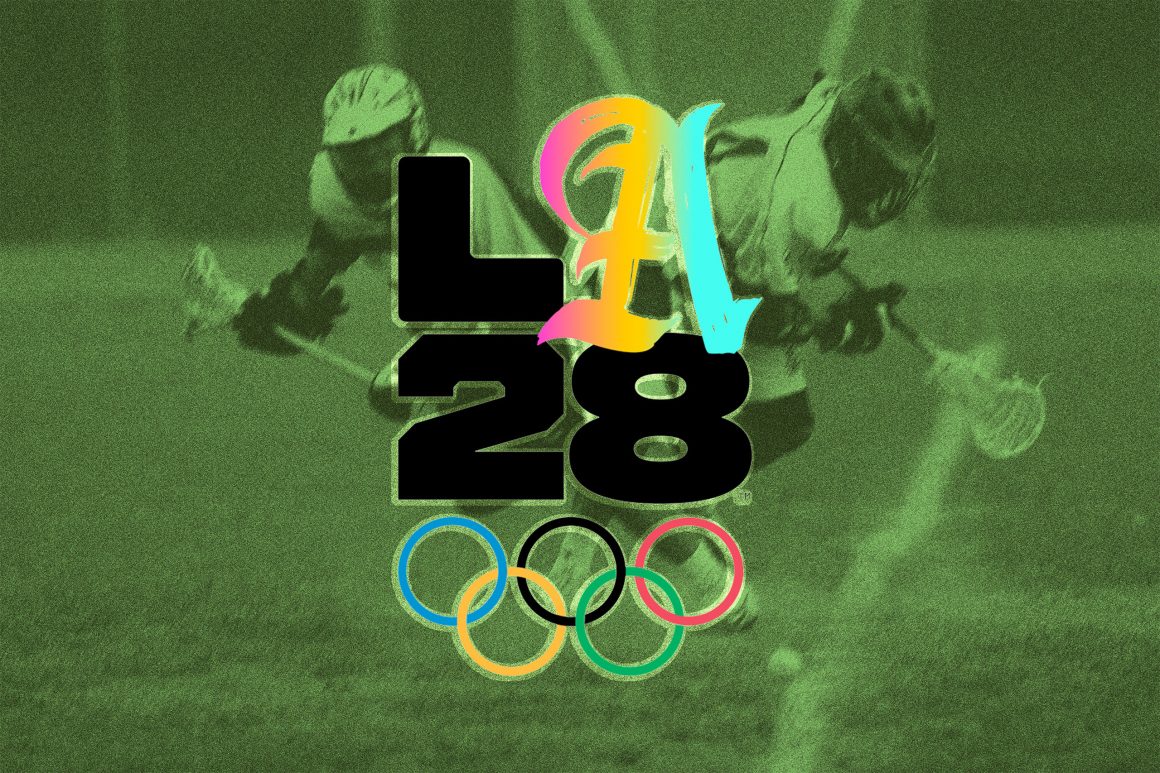
Lacrosse and sovereignty: The Haudenosaunee Nations’ path to the 2028 Olympics
By Emma Djukic, September 26 2024—
Even though the Paris Olympics wrapped up just a few weeks ago, the organizing committees, dedicated athletes and nations from around the world are already looking ahead to the next Games. The Haudenosaunee Nations’ lacrosse teams hope to be there too, this time not under any other country’s banner, but as a sovereign nation.
Lacrosse returns to the Olympics
One of the exciting prospects for the Los Angeles 2028 Olympic Games is the return of lacrosse, a sport deeply rooted in North American history. Lacrosse was last officially part of the Olympic program at the 1908 London Games, where Canada claimed the gold medal after defeating Great Britain in the finals. Although lacrosse has had minor appearances in subsequent Olympics—such as in 1928, 1932 and 1948, where it was a demonstration sport—it hasn’t been a staple event for over a century.
The inclusion of lacrosse in the 2028 Games would mark the return of a sport that was originally played by Indigenous nations. Known as “The Creator’s Game” by the Haudenosaunee, lacrosse was more than just a sport—it was a way of life, a spiritual practice and a means of settling conflicts between tribes. Having the Haudenosaunee compete on this global stage would not only acknowledge their central role in the creation of the game but also signal respect for their sovereignty.
Why representation matters
For the Haudenosaunee, competing as a sovereign nation carries profound meaning. Their desire to participate as their own team in the Olympics isn’t just about sport—it’s a powerful statement about self-determination and recognition of their sovereignty.
Randy Staats, who is a top-tier sharpshooter in the National Lacrosse League stated in an interview with CTV news why representation matters. Having represented the Haudenosaunee nation at several international tournaments since he was a teenager, Staats hopes to compete at the Olympic Games.
“For us, it’s about being included in the sport and being recognized as our own,” said Staats.
The Haudenosaunee Confederacy, which is made up of six Indigenous nations—Mohawk, Oneida, Onondaga, Cayuga, Seneca and Tuscarora—has governed itself independently for centuries. While they’ve competed in international lacrosse tournaments for years, the Olympics would offer the most visible platform to showcase their identity and autonomy.
Representing themselves would allow the Haudenosaunee to highlight their unique cultural heritage and challenge the traditional ways that nations are recognized in international arenas. This would not only symbolize athletic excellence but a reassertion of Indigenous rights on the world stage.
Challenges to Olympic participation
Despite the excitement surrounding the Haudenosaunee’s Olympic aspirations, several challenges stand in the way. One of the most significant hurdles is the issue of citizenship. Many players on the Haudenosaunee teams hold passports issued by the Haudenosaunee Confederacy itself, rather than the countries they reside in—primarily the United States and Canada. However, Olympic regulations require athletes to hold passports from internationally recognized states, which the Haudenosaunee do not, under current standards.
This same issue came up when the Haudenosaunee women’s lacrosse team was unable to compete in the 2022 World Games in Birmingham, Alabama, because their Haudenosaunee passports weren’t recognized. If this remains an obstacle, the team may be forced to seek dual citizenship or temporary waivers from Olympic governing bodies, though this could sacrifice their message of sovereignty.
Another challenge is gaining full recognition from the International Olympic Committee (IOC), which traditionally only recognizes sovereign states. Although the Haudenosaunee have competed in numerous lacrosse tournaments as an independent team—including the World Lacrosse Championships—they will need formal approval from the IOC to participate in the 2028 Olympics.
How to overcome the obstacles
While these challenges are significant, the Haudenosaunee have demonstrated incredible resilience in the face of bureaucratic barriers. They are actively engaging with the IOC and various sports governing bodies, advocating for their right to compete as a sovereign nation. President Biden endorsed the team and their goal to compete sovereignly, back in December of 2023, which is positive momentum for their efforts. With increasing awareness around Indigenous rights globally, they may find allies within these institutions who are willing to support their cause.
Another positive note is that there are precedents for non-sovereign nations competing in the Olympics, such as Puerto Rico, which competes separately from Team USA. Similarly, territories like Hong Kong and Palestine are allowed to participate under special arrangements. This could be a model for the Haudenosaunee, should the IOC choose to make an exception.
Public support will play a crucial role in helping the Haudenosaunee gain recognition. As awareness of Indigenous sovereignty issues continues to grow, they could rally support from fans, athletes and human rights organizations to put pressure on the IOC for their participation.
The Haudenosaunee lacrosse teams’ quest to compete as a sovereign nation in the 2028 Olympics is about more than just sport—it’s about visibility, recognition, and self-determination. For centuries, lacrosse has been a vital part of their culture, symbolizing community and spirituality. Now, they hope to bring that legacy to the world stage, under their own flag. With growing support from both the sports world and advocates for Indigenous sovereignty, the Haudenosaunee Nations lacrosse teams have a real chance to make history in Los Angeles. The next four years will be critical as they work to overcome these hurdles and, hopefully, take their rightful place in the Olympics—representing not just themselves but the rich heritage of the First Nations.
